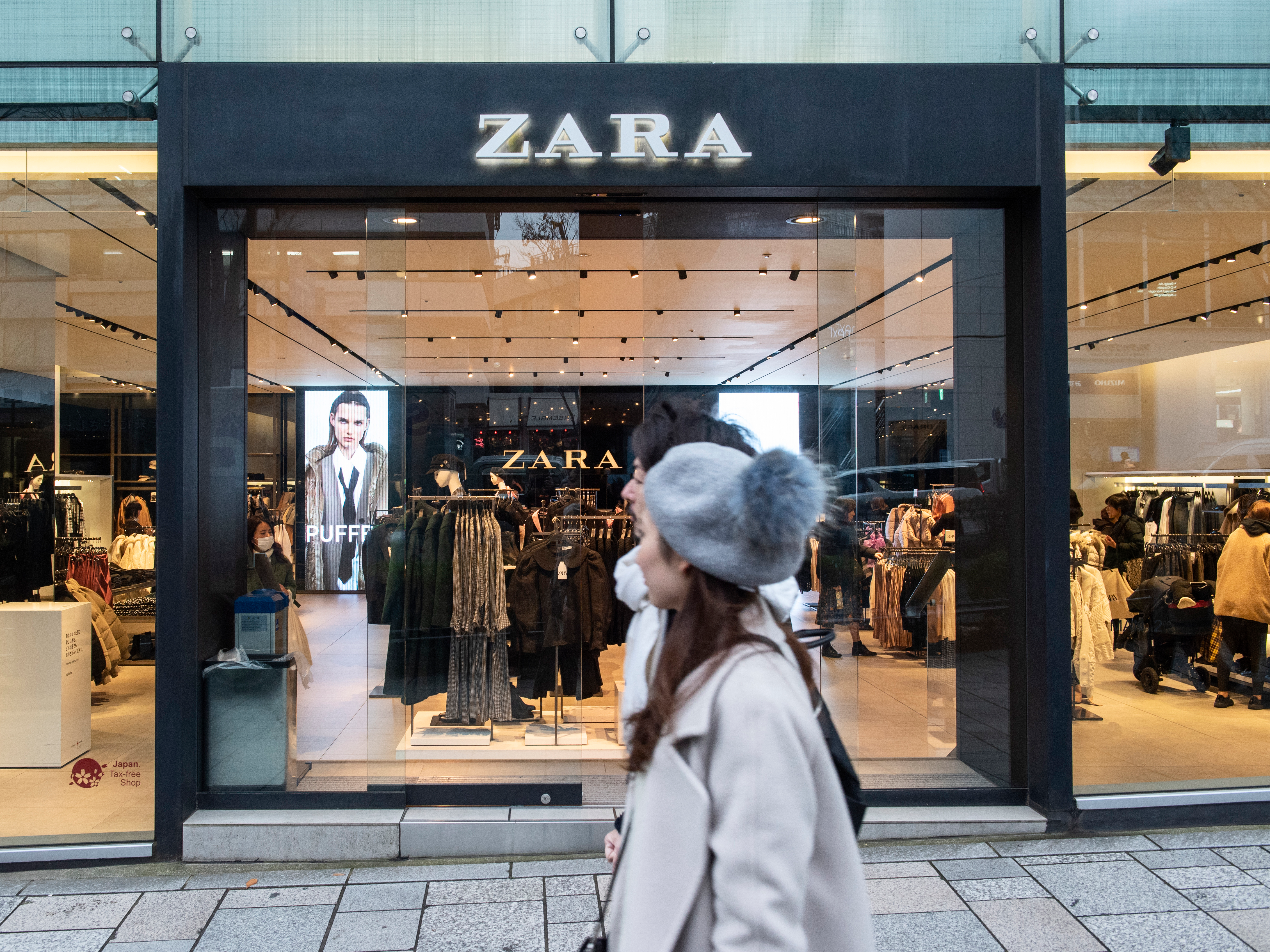- Zara’s parent company, which owns several other brands, is investing $1 billion to boost its online shopping platform over the next three years.
- The company said it expects online sales across the group to account for 25% of its overall sales by 2022.
- Analysts say even as stores begin to reopen, e-commerce is going to become a more important part of retail in the wake of the pandemic and that retailers should be preparing for that.
- Visit Business Insider’s homepage for more stories.
Inditex, the parent company of Zara and Massimo Dutti among other brands, is investing $1 billion over the next three years to expand its online shopping platform.
The Spanish fast-fashion giant announced the news Wednesday as it reported its first-quarter earnings. In a statement, it said that it expects online sales to account for a quarter of its business by 2022.
It is also spending $1.7 billion on upgrading its stores to become more integrated with its online platform by “deploying advanced technology solutions,” it said.
“The overriding goal between now and 2022 is to speed up full implementation of our integrated store concept, driven by the notion of being able to offer our customers uninterrupted service no matter where they find themselves, on any device and at any time of the day,” CEO Pablo Isla said in a statement.
Inditex, which has nearly 7,500 stores across the world, has expanded at a rapid rate over the past decade and a half opening stores in 96 different countries.
By the end of the first quarter, only 965 of its stores were open during the lockdown and during that time, online sales increased by 95%; online sales were up 50% overall during the first quarter.
Before the pandemic hit, Inditex was already focused on expanding its online business. However, its decision to double down on this suggests that it is expecting e-commerce to play an even bigger role longterm.
Analysts say even as stores begin to reopen, this period is likely to have a long-term impact on how consumers shop and that retailers should be prepping for that.
Not only could some shoppers be scared to go back to stores but the lack of any vaccine for COVID-19 means that there is a chance of a second wave of infection. Moreover, other consumers may simply have become more accustomed to shopping online during this period and choose to stick with it.
"Never since the dot-com boom has digital commerce been so front and center," a report conducted by Forrester and BloomReach about the realities of e-commerce in 2020, which was published on Tuesday, wrote.
It continued: "Digital channels for consumers and businesses have been maturing for more than two decades, but the coronavirus has pushed digital from a supporting function to a primary touchpoint for many. These touchpoints are a lifeline for consumers, businesspeople, and even students as social distancing has forced a dramatic change in behaviors."
Neil Saunders, managing director of GlobalData Retail, echoed these thoughts in an email to Business Insider.
"Online sales are likely to remain more highly penetrated than they were before and this is something brands will need to assess," he said.
Saunders stressed that retailers that offer a strong omnichannel experience are best positioned now. "The losers will be those retailers that are less adept in multichannel and which have large store estates which are increasingly irrelevant," he said.

